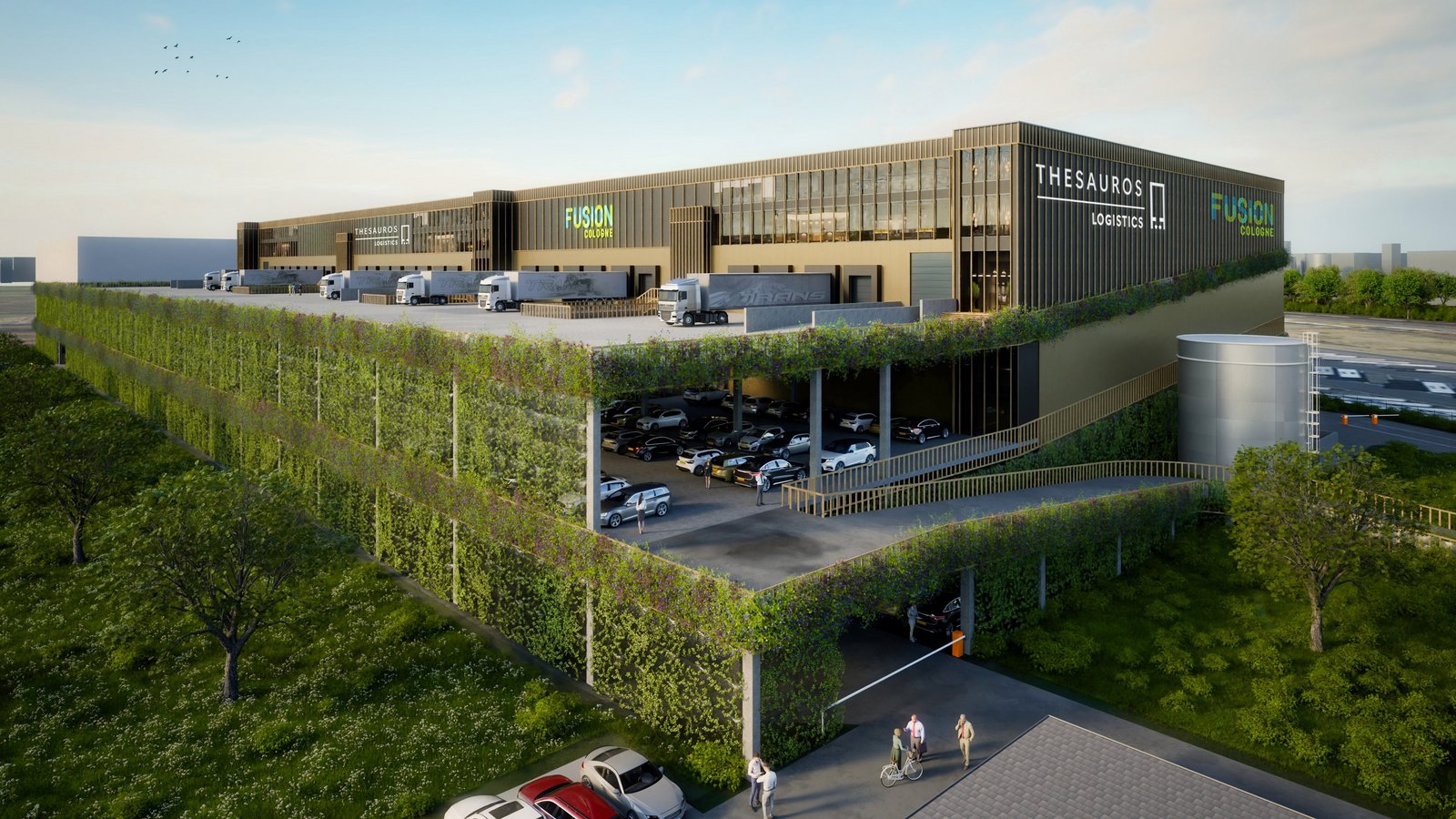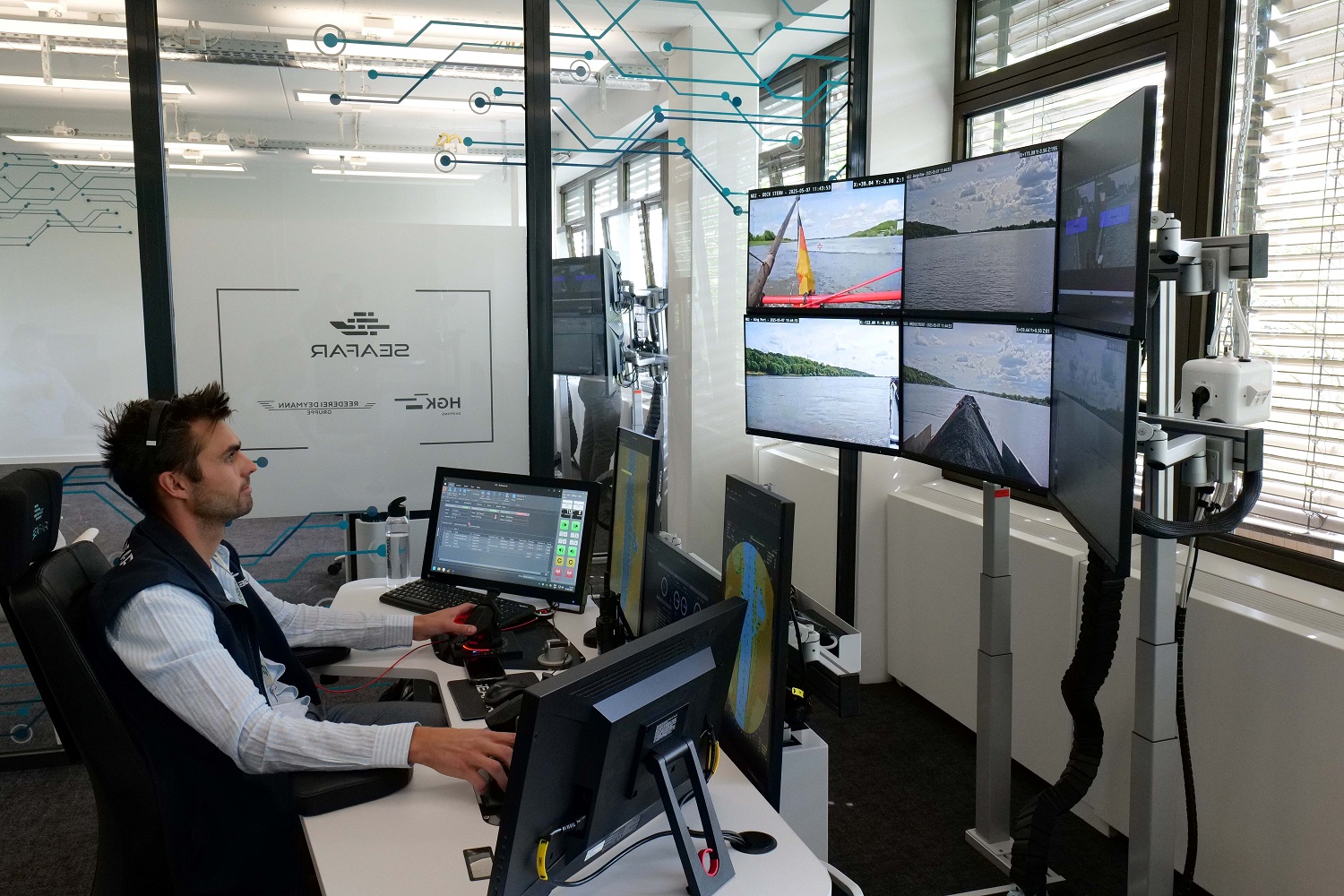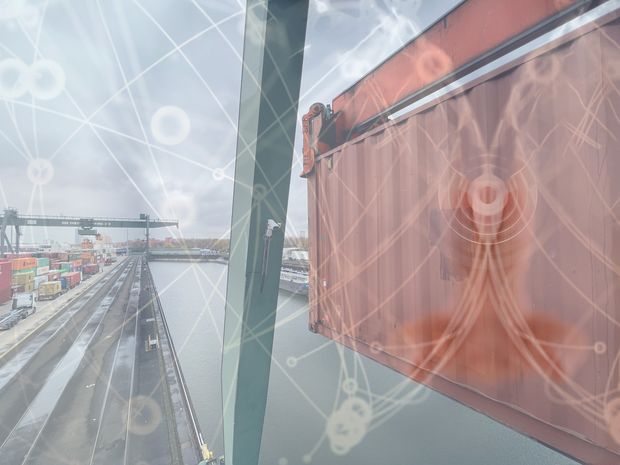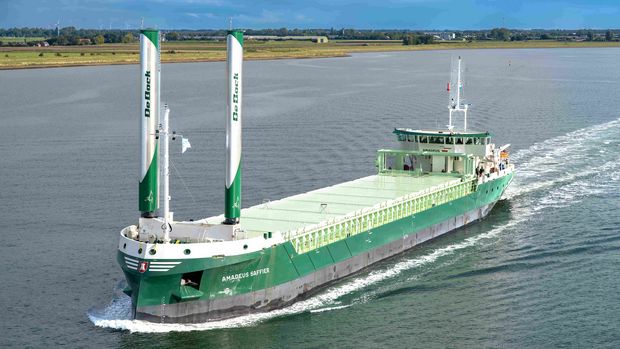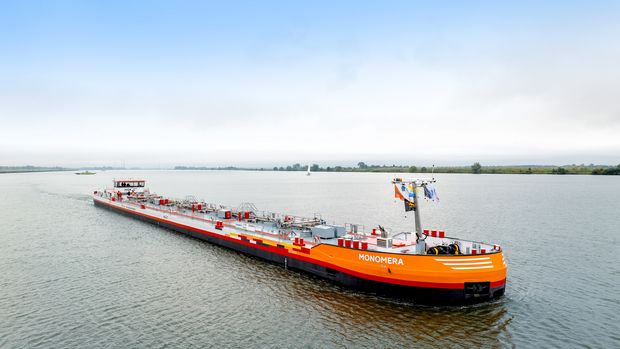
transport logistic 2025: HGK Group focuses on solutions for sustainable supply chains
Cologne / Munich. At this year's "transport logistic" trade fair, the Cologne-based HGK Group and its subsidiary RheinCargo will be sharing a stand in Hall B5. The focus of the presentation will be on sustainable supply chain solutions by rail and waterway, including the expansion of Cologne as a port location.
HGK has been breaking new ground in site development since 2023: The FUSION COLOGNE project, an integrated logistics and industrial area with a direct connection to Niehl harbour, is increasingly becoming Germany's leading location for high-quality multi-level logistics. What was presented as a vision at the last "transport logistic" two years ago has now taken on concrete form: The Thielemann Group will build the logistics centre for the German-speaking region of the electrical equipment manufacturer Makita on one of the plots. In mid-May 2025, a project agreement was signed with the Thesauros Group for two further plots in the first construction phase, where the "Crossroads" and "Gateway" projects will be realised. All three projects will be realised in multi-level construction with loading decks on two levels, which is unique at a German location to date. In total, over 150,000 square metres of warehouse space will be created on 170,000 square metres of land in the first phase of the project and around 1,000 jobs will be created. The site is connected to a climate-neutral local heating supply.
"These areas represent a significant expansion of the Niehl harbour with its trimodal connection and numerous regular connections on the west-east and north-south routes. In this way, we can offer modern logistics space with sustainable and resilient transport connections directly in North Rhine-Westphalia's largest city for the establishment of new industrial and logistics companies," explains HGK CEO Uwe Wedig. He adds: "A lot will also happen on the existing port areas in the coming years; we are currently working on a development concept and will present it soon."
The implementation of measures for sustainable supply chains is the interface that connects all of HGK's business divisions. Reducing CO2 emissions is a key objective, as well as focussing on new groups of goods resulting from the energy transition, such as the transport of captured CO2 as part of CCU processes or products resulting from new approaches in the recycling industry.
HGK Shipping has set itself the task of developing transport solutions for the goods of the energy transition. With innovative ship designs for the transport of hydrogen derivatives such as ammonia or captured CO2, the company offers its industrial partners optimal solutions for inland and sea transport.
HGK Shipping is also a driver of innovation when it comes to digitalisation and is working on the implementation of semi-autonomous operation of inland vessels. The federal government recently granted the first licence for test operations in the north-west German canal area. "Together with our technology partner SEAFAR, we are also focusing on increasing the digitalisation of inland shipping by modernising our fleet of ships. When recruiting qualified labour, this is an effective lever for increasing the attractiveness of the profession," says Steffen Bauer, CEO of HGK Shipping GmbH.
HGK Logistics and Intermodal is also committed to sustainability. For example, the company only uses green electricity and, in consultation with its customers, is pushing ahead with the electrification of its lorry fleet for transfers and last-mile transport in conjunction with solar roof projects on its warehouses. "We have a responsibility to make our logistics services as environmentally friendly as possible within the scope of our possibilities. We experience the effects of climate change on a daily basis," says Markus Krämer, CEO of HGK Logistics and Intermodal GmbH, explaining the initiatives.
RheinCargo (RC) reduces energy consumption and emissions by flexibly linking waterway, rail and road transport. RC also uses only green electricity to power its electric locomotives. In addition, the traction vehicle fleet is currently being consistently supplemented with hybrid vehicles that can run under overhead lines and on the mostly short non-electrified routes at the customer's premises. "One train replaces up to 52 lorry transports, and lorries emit 110 times more CO2 per tonne-kilometre than freight trains. With new, efficient traction units, this already positive eco-balance can be improved even further," explains RC Managing Director of Operations Götz Jesberg.
The HGK Group stand with HGK AG, the HGK Shipping, HGK Logistics and Intermodal divisions and RheinCargo is located in Hall B5, Stand 311/410.


